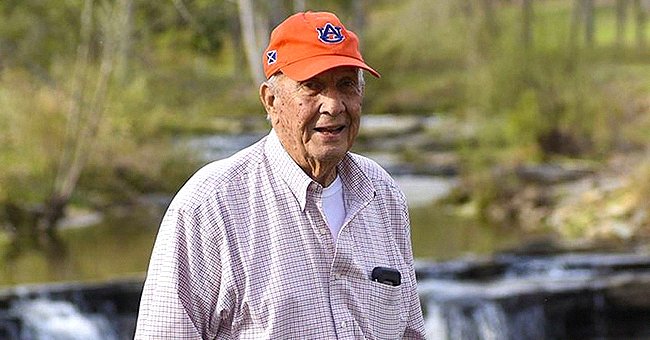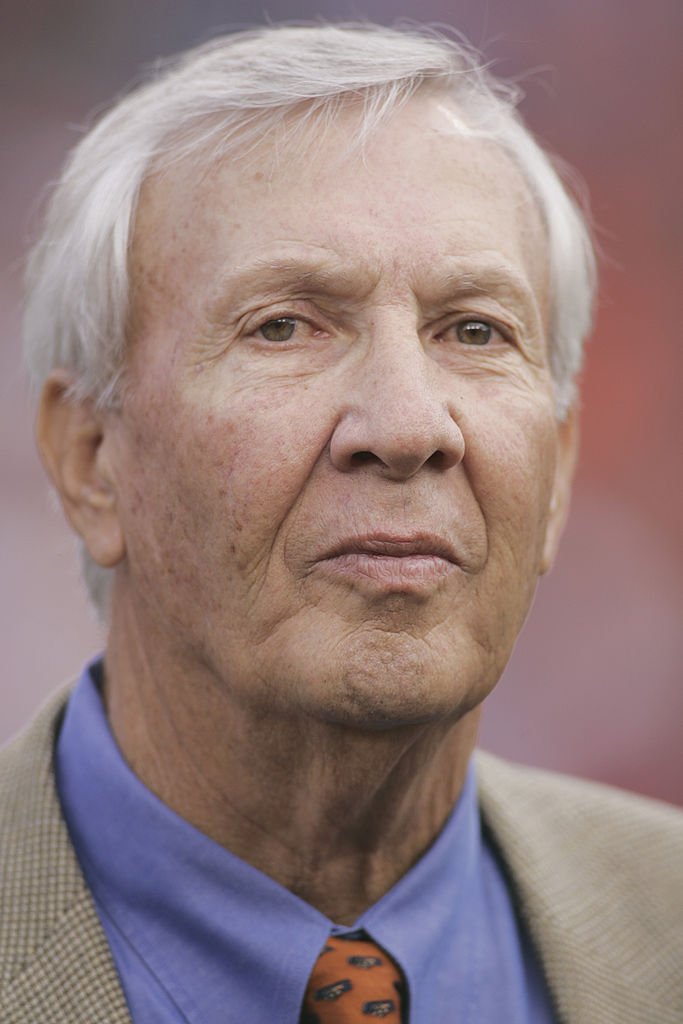
Auburn Football Coach Pat Dye Dies at 80 – Circumstances of His Death Revealed
Iconic Auburn football coach, Pat Dye, has passed away at the age of 80 on Monday after complicated health issues.
After an impactful life and career in college football, the world said goodbye to legendary football coach Pat Dye on Monday at the age of 80.

Pat Dye at his induction to the College Football Hall of Fame on November 19, 2005 in Auburn, Alabama | Photo: Getty Images
The sad news was shared via a tweet by Auburn Tigers Football, where they paid tribute to the icon explaining that the college team wouldn't be where it was without the impact of Dye.
He was inducted into the College of Football Hall of Fame in 2005 and had the playing field at Jordan-Hare Stadium named in his honor.
According to CNN, Dye passed away in hospice care after battling kidney and liver failure, as confirmed by Bill Harris, Lee County coroner. Prior to his death, Dye was admitted to the hospital because of kidney-related problems.
While receiving treatment, it was discovered that he was infected with the novel coronavirus but was asymptomatic, as revealed by his son, Dye. Jr. in a statement to ESPN. Unfortunately, he couldn't make it.
In a statement sharing the news of his father's passing, Dye. Jr., who is an NFL agent, thanked fans and supporters who sent their well-wishes while he was hospitalized, before honoring his dad's legacy. He said:
"The world has lost a pretty good football coach and a great man. He was beloved, he touched so many lives, and he will be missed by many, especially our family."
Pat Sr., who was described as one of the winningest coaches in school history, was famous for leading the Auburn Tigers to a 99-39-4 overall record in his 12 seasons as head coach, per Sec Sports.
He also led them to win four Southeastern Conference Championships in 1983, '87, '88, and '89 and was named SEC Coach of the Year three times.
As recalled by USA Today, Born November 6, 1939, Dye grew to become a college football player at the University of Georgia.
Afterward, he got his first coaching experience as an assistant coach charge of linebackers at Alabama from 1965 to 1973.
He was inducted into the College of Football Hall of Fame in 2005 and had the playing field at Jordan-Hare Stadium named in his honor. He will, no doubt, be missed dearly.
